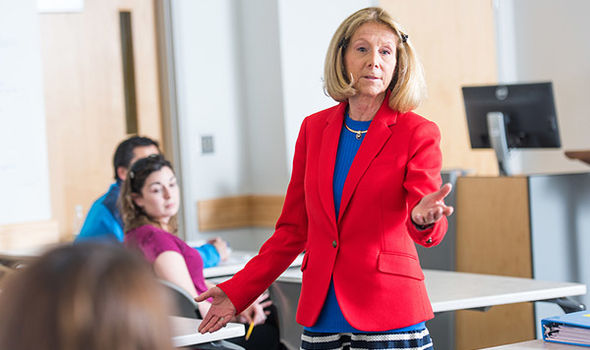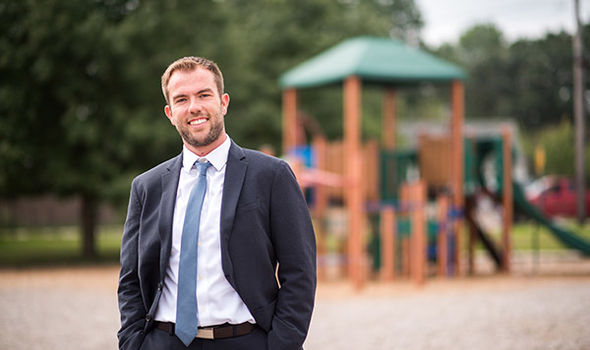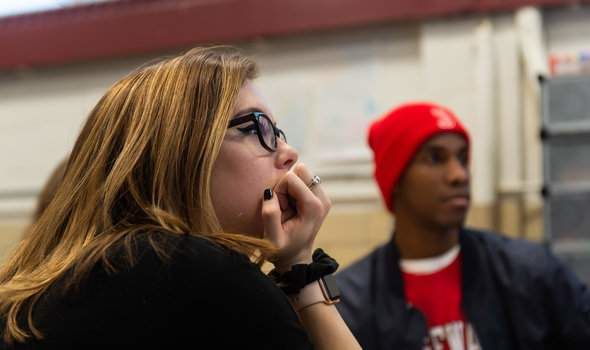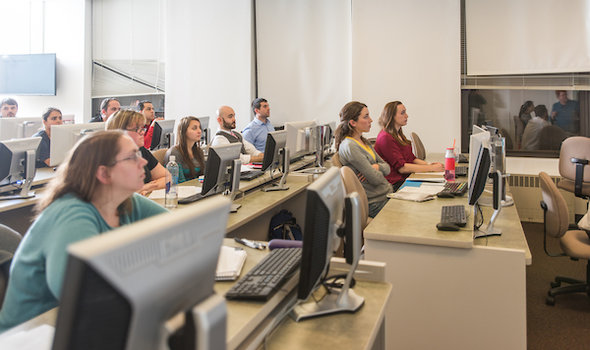Throughout each of our master’s in educational leadership and related programs, you’ll study everything from team building, decision making, problem solving and strategic planning to institutional, legal, fiscal and external political perspectives on education.
- Educational Leadership (Non-Licensure) MEd and EdS: These programs emphasize theory and practice to prepare you to become a school administrator, supervisor, principal and superintendent.
- Educational Leadership, Principal/Assistant Principal (Initial Licensure), Postbaccalaureate Licensure, MEd, Post-Master's Licensure and EdS: These programs prepare you for a career as a school administrator, supervisor, principal or superintendent, and include your postbaccalaureate or post-master’s initial licensure for Massachusetts.
- Educational Leadership, School Business Administrator (Initial Licensure), Postbaccalaureate Licensure, MEd, Post-Master’s Licensure and EdS: These professional degree programs emphasize relationships between curriculum and instructional development, supervision of instruction, and professional and organizational development.
- Educational Leadership, Special Education Administrator (Initial Licensure), Post-Master’s Licensure, EdS, Post-Master’s Licensure and EdS: Designed for educators with master's degrees, these programs delve into effective supervision and administration of special education programs.
- Educational Leadership, Supervisor/Director (Initial Licensure), Postbaccalaureate Licensure, MEd, Post-Master’s Licensure and EdS: Hone skills to effectively lead through a practicum in supervisorship and directorship as part of these educational leadership programs.
Admission Requirements and Program Details
Click any link below to reveal each program's admission requirements and program description.
Educational Leadership, Higher Education Administration
Educational Leadership, Principal/Assistant Principal
Educational Leadership, School Business Administrator
Educational Leadership, Special Education Administrator
Educational Leadership, Superintendent/Assistant Superintendent
Educational Leadership, Supervisor/Director
Program details from 2025-2026 Undergraduate/Graduate Catalog
Graduate Program Coordinator: Dr. Carol Young






